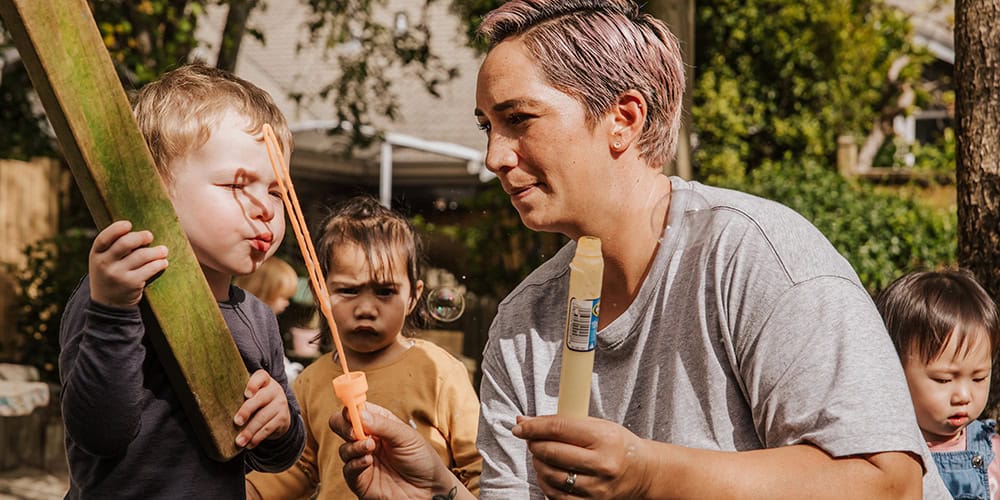theteam@theeducationhub.org.nz
Postal Address
The Education Hub
110 Carlton Gore Road,
Newmarket,
Auckland 1023
Teams in early childhood settings work together to promote the learning and wellbeing of children as well as their own professional knowledge and understanding.

What the research says about supporting neurodivergent teachers in the workplace.

The crucial importance of teacher wellbeing and how early childhood settings can protect and enhance it.

An introduction to the research on PLCs in early childhood education.

An approach to team-work and leadership that emphasises concurrence, collectivity, collaboration and compassion, with strategies to promote leaderful practices among team members.

Dr Kiri Gould of the University of Auckland explores teacher identity in early childhood education, and how it intersects with discourses of equity, belonging, and inclusion

Dr Sarah Ferguson shares her extensive knowledge about how to promote workplace wellbeing, including providing educators with tools and strategies that help them to build their resilience and improve their wellbeing

Dr Chris Jenkin (AUT) discusses the benefits and growth that come from approaching team-building from an appreciative inquiry perspective.

This session with Deanna Niha, from an early childhood centre in Whangarei, discusses how her centre approaches bilingual and bicultural education and leadership.

This webinar explores ways teachers might come together to harness the opportunities of diversity and relationships for the benefit of children and families.

This webinar explores the importance of teachers’ relationships with each other in early childhood settings.

Key insights from a webinar with Dr Kiri Gould from The University of Auckland Waipapa Taumata Rau.

Insights from a webinar with Dr Sarah Ferguson.

How effective teams work together and support each other.

The key insights from our webinar with Chris Jenkin on Appreciative Inquiry.

Key insights from ECE leader Deanna Niha on bicultural practice and leadership

How teachers can build trusting relationships in diverse teaching teams in ECE